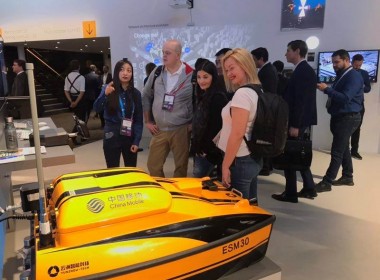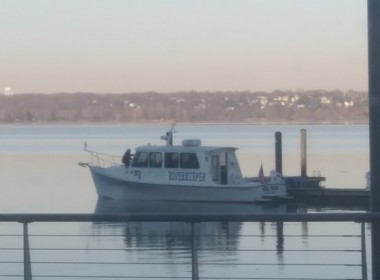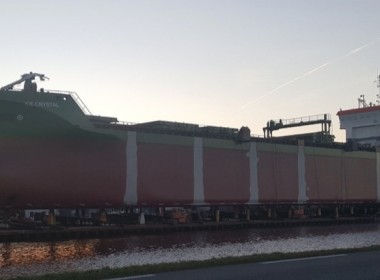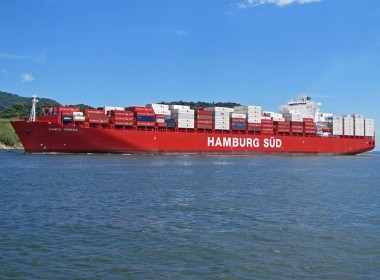New air pollution regulations to apply from January 1

New regulations relating to air pollution from vessels apply from January 1, 2023, the Australian Maritime Safety Authority (AMSA) has confirmed.
These changes are the result of a review of Marine Order 97 (MO97) that included public consultation in March and again between August-October of 2022.
MO97 deals with the prevention of air pollution from vessels and gives effect to the MARPOL Regulations for the Prevention of Air Pollution from ships (Annex VI).
The reissue of MO97 implements a new short-term measure adopted by the International Maritime Organisation (IMO) to reduce the carbon intensity of international shipping by 40 per cent by 2030, compared to 2008 levels.
The short-term measure
Who the changes affect
New short-team measure requirements apply to:
- owners, operators, and agents of Regulated Australian Vessels that are cargo and passenger vessels; and
- foreign flagged cargo and passenger vessels operating in Australian waters.
Energy Efficiency Existing Ship Index (EEXI)
Specific types of foreign-flagged vessels and commercial Australian vessels are required to make technical energy efficiency improvements under the Energy Efficiency Existing Ship Index (EEXI) framework.
The EEXI applies to international cargo and passenger vessels of 400 GT and above.
The EEXI is related to the technical design of a vessel and involves a one-off verification of the vessel’s energy efficiency that occurs at the first periodical survey in 2023 at the latest. Vessels that do not meet the relevant EEXI target will need to make technical improvements.
Carbon Intensity Indicator (CII)
Specific types of foreign-flagged vessels and commercial Australian vessels are required to make operational energy efficiency improvements under the Carbon Intensity Indicator (CII) framework.
The CII applies to ships of 5,000 GT and above and measures how efficiently a vessel transports goods or passengers.
The vessel’s Ship Energy Efficiency Management Plan (SEEMP) must be updated to document its CII targets and how these will be achieved, the CII calculation method, reporting process and procedures for self-evaluation and improvement.
At the end of each calendar year, the vessel’s annual attained CII must be reported to the vessel’s flag State or authorised organisation for verification. In turn, the vessel will be provided with a rating from A to E, where A is the highest.
Vessels underperforming against their annual CII target — i.e. rated as D for three consecutive years or rated E once — will be required to develop a plan of corrective actions outlining what actions will be taken to ensure the ship meets its required CII target and how long it will take to bring the ship back into compliance.
Read more about the EEXI and CII requirements.
Exemption for UNSP barges
Unmanned non-self-propelling (UNSP) barges can apply for an exemption from certain survey and certification requirements relating to the international air pollution prevention (IAPP) certificate.
UNSP barges are defined as barges that:
- are not propelled by mechanical means
- have no system, equipment or machinery fitted that may generate emissions regulated by MARPOL Annex VI, and
- do not have people or live animals on board.
Barges that meet these requirements can be provided an exemption certificate by their flag State or administration for a period of up to five years after a confirmatory survey has been conducted on the UNSP barge.
Changes to EIAPP from January 1, 2023
Who the changes affect
These requirements apply to:
- DCV owners looking to install a new diesel engine with a power output of more than 130 kW
- DCV owners looking to do a major conversion on their existing diesel engine with a power output of more than 130 kW
- suppliers of marine diesel engines to DCVs or recreational vessels with a power output of over 130 kW
- people who carry out a major conversion on marine diesel engines for DCVs or recreational vessels with a power output of over 130 kW
- people intending to construct a new domestic commercial vessel (DCV) and install diesel engines with a power output of more than 130 kW
Domestic commercial vessels
MO97 requires an engine international air pollution prevention (EIAPP) certificate and associated technical file to be issued for all marine diesel engines with a power output of more than 130 kW. For DCVs, this requirement applies to all marine diesel engines installed or that undergo a major conversion from January 1, 2023.
Diesel engine suppliers and persons who carry out a major conversion will be required to provide an EIAPP certificate and the technical file with any new marine diesel engine with a power output of more than 130 kW for installation on a DCV or certain recreational vessels.
Existing marine diesel engines installed before 1 January 2023 don’t require an EIAPP certificate or associated technical file. However, they will be required to obtain an EIAPP certificate and technical file for each diesel engine with a power output of more than 130kW on the vessel if:
- The engine undergoes a major conversion after January 1, 2023, or
- The vessel intends to undertake an overseas voyage (for example, to undertake maintenance or on a delivery voyage).
Read more about the EIAPP requirements.
Note: From January 1, 2023, Exemption 44–Marine Safety (Domestic commercial vessels – EIAPP Certificate) (Ex44) will no longer be applicable to MO97. However, EX44 will remain applicable to MO503.







